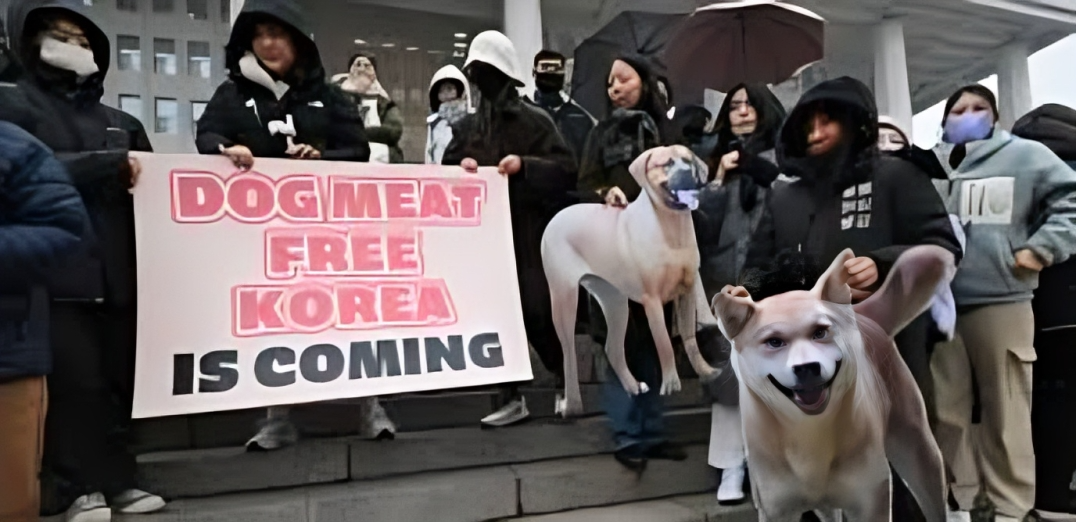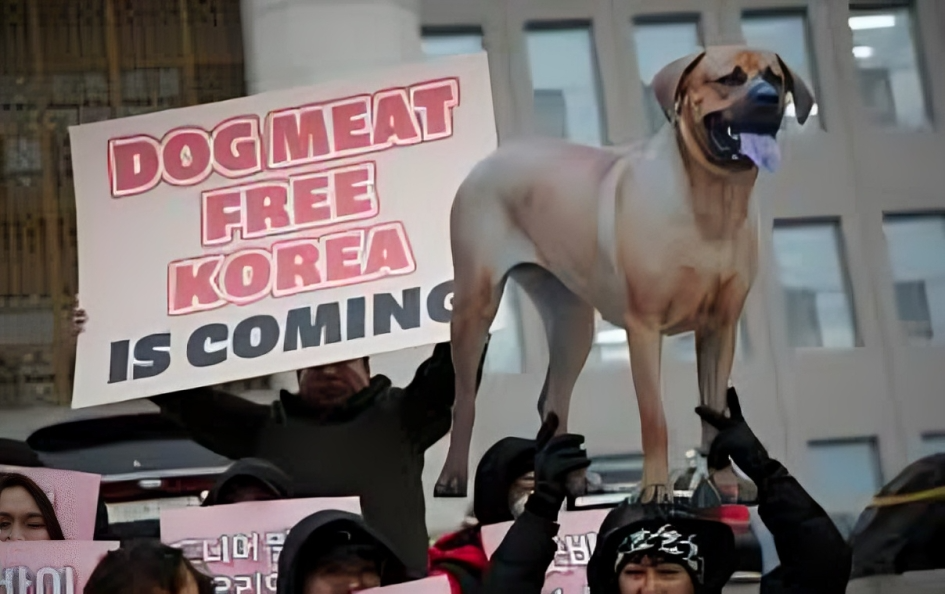In a historic move for animal welfare, South Korea bans dog meat industry completely by 2027. The legislation, passed unanimously in January 2024, marks the beginning of the end for a centuries-old culinary practice that has drawn increasing international and domestic criticism.
The ban prohibits the breeding, slaughter, distribution, and sale of dogs for meat. It is seen as a bold reflection of South Korea’s changing relationship with animals, especially dogs, who are now widely seen as family members rather than food.
However, as South Korea bans dog meat industry, serious concerns remain about the fate of the estimated 520,000 dogs currently being raised on farms for consumption and the impact on farmers who depend on this trade for their livelihoods.
Why South Korea Bans Dog Meat Industry Now
The decision that South Korea bans dog meat industry by 2027 is rooted in shifting public attitudes and mounting pressure from animal rights activists. According to a 2023 Gallup Korea survey, only 8% of South Koreans reported eating dog meat in the past year — a steep decline from 27% in 2015.
The younger generation has played a vital role in this change. More South Koreans now consider dogs as household pets and companions rather than livestock. This cultural shift, amplified by campaigns from organisations like Humane Society International (HSI), has catalyzed the political momentum for the nationwide ban.
JungAh Chae, executive director of HSI Korea, called the move “history in the making” and praised lawmakers for aligning the country’s laws with evolving societal values.
What Happens to the Dogs Now?
Though South Korea bans dog meat industry legally, the ban does not immediately solve the logistical and ethical dilemma of what to do with the dogs currently bred for slaughter. As per the Ministry of Food, Agriculture, Forestry and Fisheries, over 520,000 dogs were kept on 1,156 farms as of 2022. About 388,000 dogs were served annually in approximately 1,666 restaurants.
Now, rescue organisations and animal shelters are facing overwhelming challenges. With time ticking toward 2027, many dogs risk being abandoned or euthanized unless they are rescued, rehomed, or relocated to shelters—most of which are already at capacity.

Farmers Caught in Crisis
While animal activists celebrate that South Korea bans dog meat industry, dog meat farmers are expressing confusion and frustration. Many feel betrayed by the abruptness of the decision and worry about the lack of a clear transition plan.
Mr. Chan-woo, a farmer who has worked in the trade for over a decade, said the industry is in “complete limbo.” Farmers like him are seeking answers about compensation, financial aid, or job transition support promised by the government.
Another farmer, Mr. Joo, warns that in the absence of real support, “desperate outcomes” could occur — including the mass killing of dogs to avoid prolonged costs of upkeep without any return.
Cultural Resistance Still Exists
Even though South Korea bans dog meat industry, not everyone agrees with the law. Opponents argue that the government is interfering in personal dietary freedom and cultural traditions.
For some in the older generation, dog meat has cultural significance, often consumed during summer to boost stamina. Critics of the ban fear it might pave the way for restrictions on other traditional food practices.
However, lawmakers supporting the ban insist that evolving ethics and international image demand that South Korea moves past this controversial practice.

Government’s Role Going Forward
The South Korean government has stated that it will provide financial and vocational support to farmers and restaurant owners affected by the law. However, no concrete plan has yet been released.
With South Korea banning dog meat industry by 2027, lawmakers are under pressure to ensure a humane and effective transition that safeguards animal welfare and protects human livelihoods. Activists stress that enforcement and post-ban management will be key to the success of this legislation.
A Global Message
As South Korea bans dog meat industry, it joins a growing list of countries that have moved away from the practice. The decision sends a powerful message globally about compassion, evolving traditions, and a commitment to animal rights.
Rescue organisations across the world have offered help in rehoming dogs from South Korea. Still, the sheer number of animals involved makes this a colossal task. The international community will be watching how the country handles the transition in the months and years ahead.
South Korea bans dog meat industry in a decision that is both groundbreaking and complex. While the ban reflects progressive values and a more compassionate society, it also leaves behind difficult questions about implementation, the fate of over half a million dogs, and the livelihoods of thousands of people.
The real test begins now—balancing compassion with pragmatism, and ensuring that the dogs and humans caught in the crossfire of change are not left behind.
50 Years Since the Emergency: PM Modi and Top Leaders Slam ‘Constitutional Murder’

